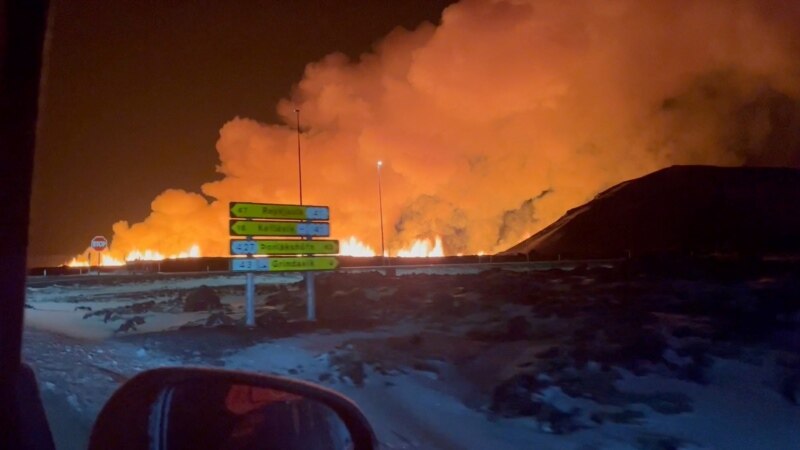Icelandic police said Monday that residents of a fishing village evacuated because of multiple volcanic eruptions were allowed to return, adding that they believed few would stay overnight because of the state of the town.
The roughly 4,000 residents of Grindavik on the Reykjanes peninsula in southwest Iceland had to be evacuated on Nov. 11 after hundreds of earthquakes damaged buildings and opened up huge cracks in roads, shrouding the village’s future in doubt.
The quakes were followed by a volcanic fissure on Dec. 18 that spared the village, but a second on Jan. 14 opened right on the town’s edge, sending orange lava flowing into the streets and reducing three homes to ashes.
On Feb. 8 a third eruption near the village started, sending an estimated 15 million cubic meters of lava flowing out in the first seven hours.
Lava from the third eruption crossed over a key water pipe, cutting off hot water, which is also used to heat houses, in the southern part of the peninsula, known as Sudurnes, home to some 28,000 inhabitants.
On Monday, the chief of police of Sudurnes, Ulfar Ludviksson, decided that residents and those working in the village were once again free to return to the town and could stay as long as they wanted.
In a statement, Ludviksson made clear that residents and workers enter the town “at their own risk” and stressed that the town was “not a place for children.”
Police added that the town’s infrastructure is in a state of disrepair, the hot water pipe supplying the town is leaking, meaning heating is limited, and there is no cold water, and therefore no drinking water.
“The police chief does not expect many … to choose to stay in the town overnight. They are allowed to do so, but the police chief does not recommend it,” the statement said.
The town remains closed to anyone but residents, workers or those who need to help residents.
Iceland is home to 33 active volcano systems, the highest number in Europe.
It straddles the Mid-Atlantic Ridge, a crack in the ocean floor separating the Eurasian and North American tectonic plates.
But until March 2021, the Reykjanes peninsula had not experienced an eruption for eight centuries.
Further eruptions occurred in August 2022 and in July and December 2023, leading volcanologists to say it was probably the start of a new era of seismic activity in the region.

